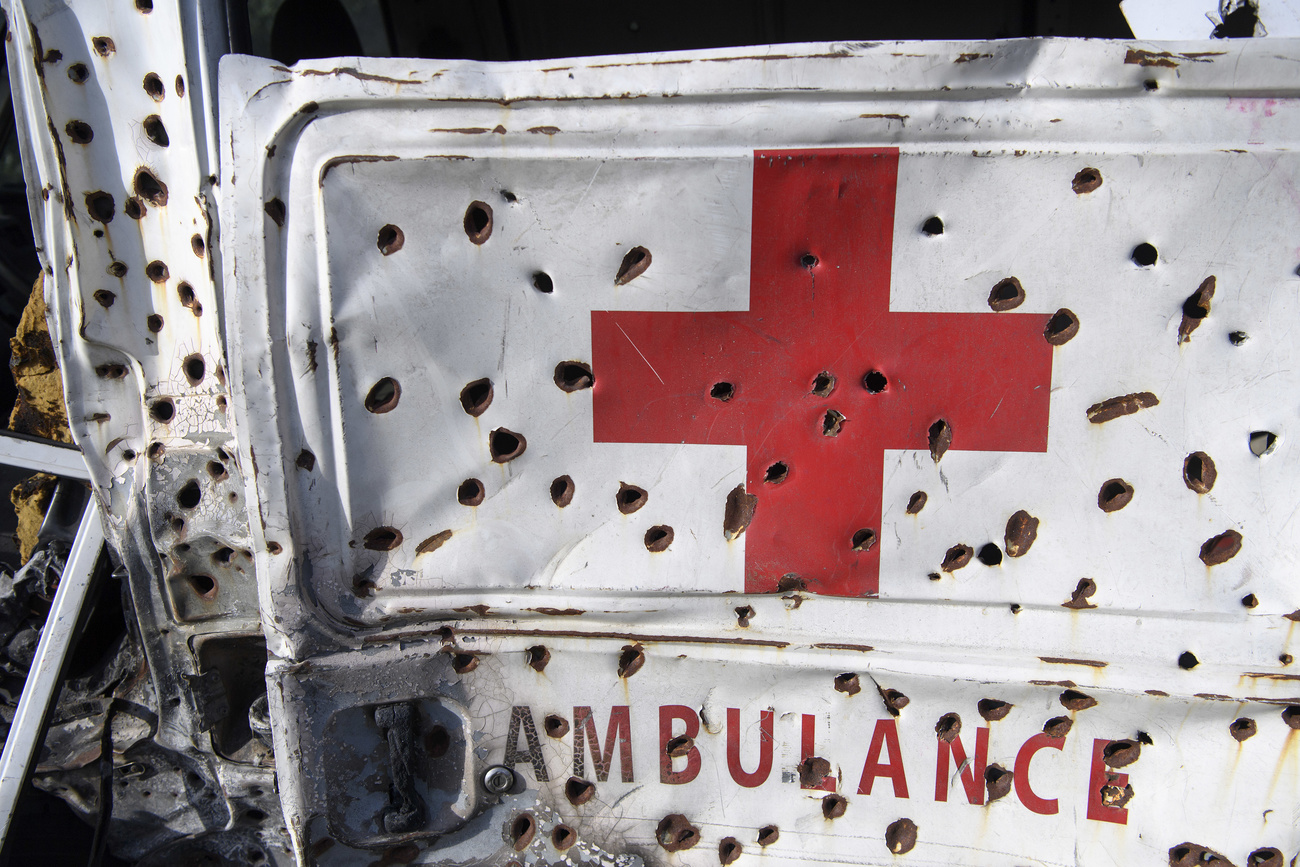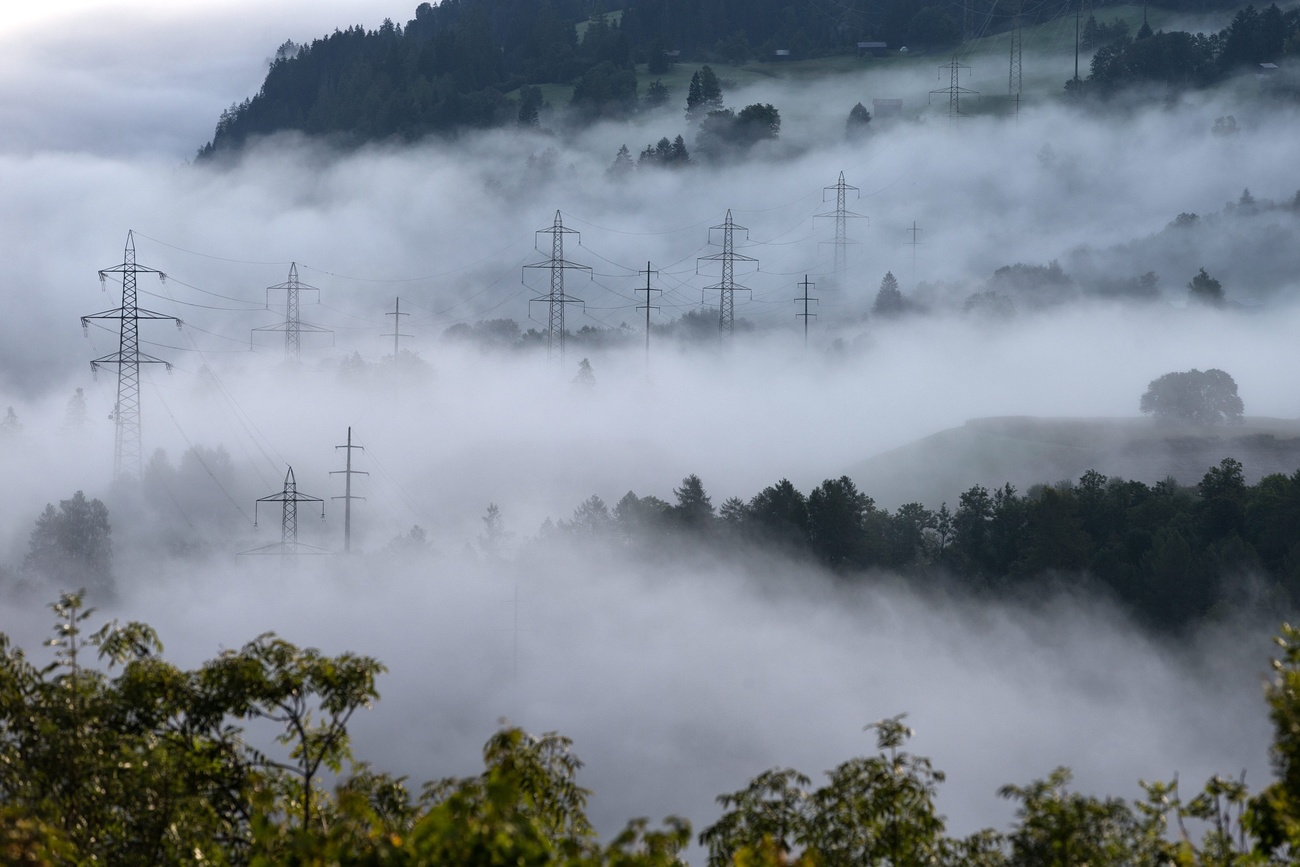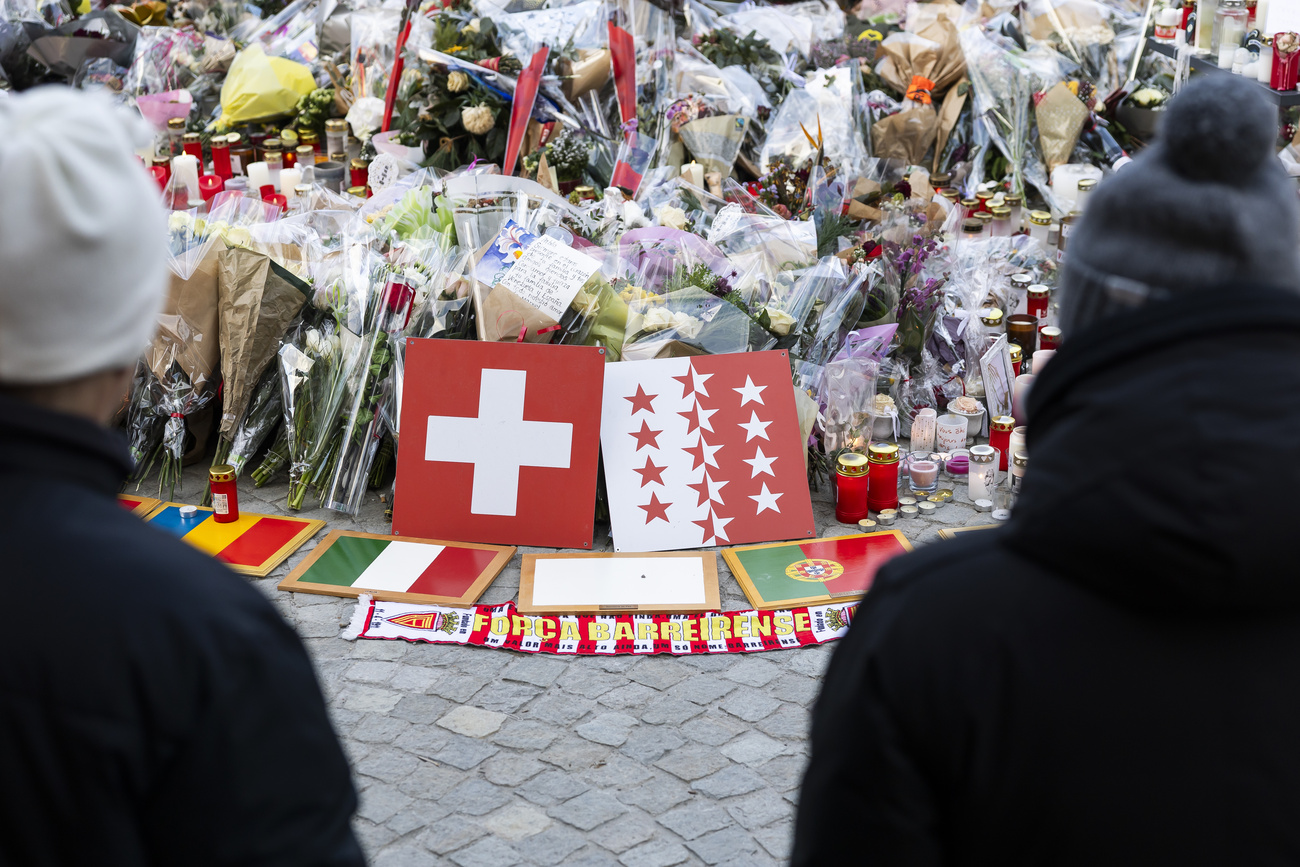

Switzerland Today
Greetings from Lausanne!
Here are the latest news and stories from Switzerland on Thursday.
SWI swissinfo.ch is keen to find out more about your information needs and habits so don’t forget to complete our new online survey.

In the news: the Red Cross gets hacked, OECD labour recommendations for Switzerland, and a European “Gender Diversity Index”.
- The Geneva-based International Committee of the Red Cross (ICRC) has been the victim of a “sophisticated cyber-attack”. Servers hosting the personal and confidential data of more than 515,000 extremely vulnerable people have been compromised.
- Switzerland should expand labour market participation to maintain high living standards, according to the Organisation for Economic Co-operation and Development (OECD). In a new reportExternal link it recommends Switzerland help more older, low-skilled and female workers into jobs and reduce gender gaps in working hours.
- The proportion of women in leading positions at major European companies rose slightly last year but progress is slow, according to a study that compares 19 countries. Switzerland was ranked near the bottom of the 2021 “Gender Diversity Index”.

Swiss president travels to Berlin for talks with the German government.
Swiss President Ignazio Cassis, who is also Swiss foreign minister, travelled to Berlin todayExternal link for meetings with German President Frank-Walter Steinmeier (both in photo above), Chancellor Olaf Scholz and Foreign Minister Annalena Baerbock.
Talks focused on bilateral relations and the Covid-19 pandemic. But Switzerland’s relations with the European Union and its institutional framework agreement overseeing long-term ties, which was rejected by Switzerland in May, were likely to have also been on the agenda.
The Swiss government is under pressure from Brussels – and from within Switzerland – to make progress on this issue. European Commission Vice-President Maros Sefcovic and Cassis were due to have an exchange of views at the January meeting of the World Economic Forum in Davos. But it was cancelled due to Covid-19.
In December the French ambassador to Switzerland, Frédéric Journès, told newspaper Le Temps that Brussels was awaiting Swiss proposals on the key subjects of common rights and obligations, dispute settlement and the reframing of the application of certain agreements on the free movement of workers. These issues did not disappear with the rejection of the framework agreement by the Swiss, Journès warned.
So far, neighbours Germany and Austria have been fairly receptive to Switzerland vis-à-vis the Swiss-EU dossier. One day before the meeting the Federation of German Industries called for a “rapid return to constructive talks” between the EU and Switzerland.

Electricity, gas and fuel costs have skyrocketed in Switzerland since the summer – a growing concern for small and medium-sized firms.
Rising energy prices in Switzerland last year have mirrored those in other countries. In December 2021 the price of fuel oil was 36.8% higher than a year ago, accordingExternal link to the Federal Statistical Office. It also reported an annual price increase of 26.5% for gasoline, 22.3% for diesel, 8.6% for gas and 11.6% for pellets. An in-depth articleExternal link in today’s Le Temps takes a closer look at this issue.
The rising price of electricity that powers its machine tools is having an impact at Lauener & Cie, a Neuchâtel firm that specialises in watchmaking and medical products.
Up to now, the SME with 130 employees paid CHF200,000 ($220,000) a year for three million kilowatt hours (kWh) of electricity. This figure could quadruple. “It corresponds to ten salaries. It’s huge. We have budgeted the cost of electricity at 4% of our sales for 2022, compared to 1% in 2021. This is not sustainable in the long term,” explained general manager Emmanuel Raffner. “This increase is having a much greater impact on our business than Covid.”
SMEs that consume less than 100,000 kWh per year and households cannot buy their electricity on the open market. For them, the electricity prices for the following year are announced in advance. In 2022 they will increase by 3%External link , which will raise the annual electricity bill for an average household by CHF32 to CHF954.
“Energy is available, prices are rising and they remain satisfactory, but what about the future? With the disappearance of nuclear power, energy will become scarce and prices will increase a lot again,” fears André Berdoz, vice-president of the Swiss Union of Arts and Crafts and director of two electrical companies. “Bosses of small companies are still not very aware of these issues, but they will be very quickly.”

Swiss resorts and hotels featured strongly in the 2021 World Ski Awards.
Verbier in canton Valais (photo above) was voted the best ski resort in the world by the World Ski AwardsExternal link organisation, beating off competition from 25 contenders. Kitzbühel in Austria came second, followed by France’s Val Thorens.
Meanwhile, Laax, in canton Graubünden, was chosen as the “World’s Best Freestyle Resort”. In the accommodation categories, Laax’s rocksresort was voted “World’s Best Green Ski Hotel”, the W Verbier took the award for the “World’s Best Ski Hotel” and Chalet Zermatt Peak was voted the best ski chalet in the world.
The World Ski Awards was launched in 2013 with the aim of “driving up standards in the ski tourism industry”. Votes are cast online by ski industry professionals – senior executives, travel buyers, tour operators and the media – and the public.

How do you keep up to date with the latest news in Switzerland?
What are the most important things for you when consulting the media? We would like to know more about your information needs and habits.
Around 776,000 people worldwide have a Swiss passport but do not live in Switzerland. We are interested in finding out how you get information on what is happening in Switzerland and in the rest of the world. We are also curious about how you stay in contact with Switzerland or with other Swiss citizens abroad. We hope we can count on your help in order to have plenty of meaningful input.
Click on the linkExternal link to take part in our survey. It is being carried out by the intervista research institute on behalf of SWI swissinfo.ch. Thank you very much for your valuable support.

In compliance with the JTI standards
More: SWI swissinfo.ch certified by the Journalism Trust Initiative






























